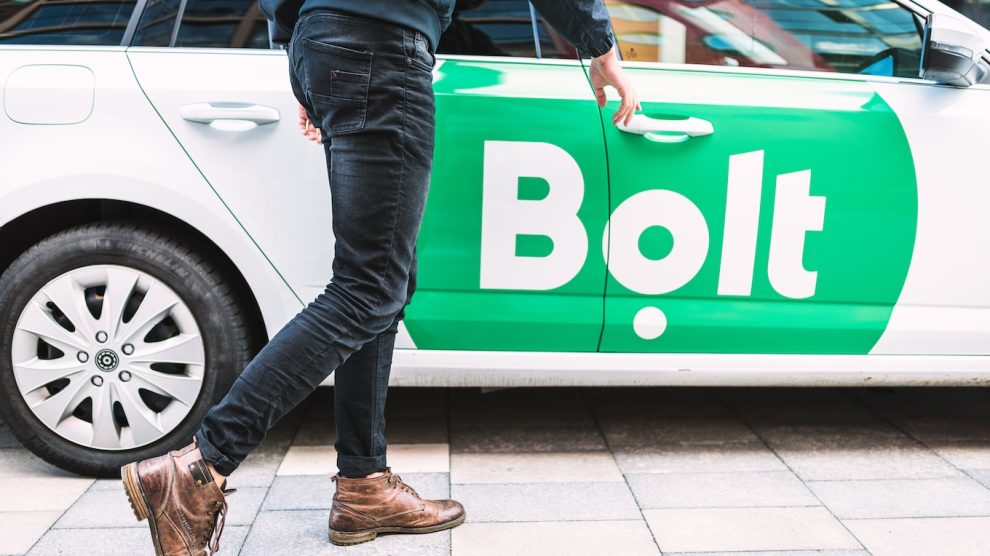There’s money available for the right firm. Over the past seven days Innova Capital has closed its hugely successful latest fund, and Bolt has taken another step towards an IPO.
Warsaw-based Innova Capital, one of the leading private equity firms active in Central Europe, this week successfully closed its latest fund, Innova/7, raising 407 million euros.
Despite navigating through the unstable economic climate in Europe and one of the most difficult fundraising environment in years, the fund surpassed both its initial target of 350 million euros and the hard cap of 400 million euros.
- ‘Venture capital in the Baltics is finally emerging as an asset class’
- Despite headwinds, Lithuania’s fintech sector remains resilient
- Latvia’s start-up scene: Second fiddle no more
Innova’s latest fund has attracted the interest of foreign institutional and commercial players from Europe and North America, as well as Polish investors, whose total share in now over 25 per cent.
With a strategic focus on three key sectors—business and financial services, industrials, and consumer and lifestyle (including healthcare)—the latest fund prioritises digitisation and modern technology integration in each sector.
Moreover, central to the fund’s management is Innova’s new environmental, social, and governance (ESG) strategy, encapsulated by the ‘Beyond Profit’ ethos. This approach commits to conducting thorough analysis of investment targets to identify ESG-driven growth opportunities, while also assessing associated risks and impacts comprehensively.
“The finalisation of Innova/7 coincides with our 30th anniversary,” says Krzysztof Kulig, Senior Partner, responsible for fundraising process.
“Therefore we are embarking on our fourth decade of operations with the most substantial capital ever amassed by us in a single fund, a new ESG strategy through which we will build the value of our portfolio companies even more effectively and new ideas on how to grow our business.
“We extend our gratitude to both long-standing and recent investors, as well as to institutions, entrepreneurs, and family offices for their confidence in us throughout this journey. Our appreciation also goes to all the partners who have been our pillar of support over the years. An exciting future lies ahead, and we are eager to capitalise on it by aiding Central European companies in their strategic evolution and seizing new growth opportunities.”
The first of the Innova/7 investments was completed in May 2023, as a part of which Innova acquired Netopia Group, a Romanian payment services provider.
Subsequently, Innova Capital has also invested in R-GOL, a multi-brand distributor of football merchandise in CEE, EMI Group providing gate and handling systems, Pfleiderer Polska, a wood-based boards manufacturer, as well as Dimark Manufacture, supplying proprietary BHS automation solutions, and CloudFerro providing cloud services to the European space sector.
Bolt takes next step towards IPO
A few days before Innova Capital’s announcement, Estonian-based mobility superapp Bolt revealed that it had secured a 220 million euros revolving credit facility, strengthening its strong financial position as it balances growth and a path to profitability.
A revolving credit facility is a line of credit that allows a company to withdraw funds, which can be repaid and withdrawn as needed.
The 220 million euros facility, provided by a syndicate of core relationship banks (Barclays, BNP Paribas, Citi, Deutsche Bank, Goldman Sachs, JPMorgan, LHV Pank and Luminor), supplements the company’s strong cash position and strengthens its liquidity profile. It is intended for general corporate purposes and is currently undrawn in line with the firm’s prudent financial approach.
“Our inaugural revolving credit facility is an important milestone for Bolt, demonstrating the company’s strength and financial maturity,” said Markus Villig, Bolt’s founder and CEO.
“We have secured highly attractive terms due to our solid financial standing. It is a clear reflection of our banking partners’ confidence in our trajectory and provides us with additional flexibility as we work towards being IPO-ready.”
Another Estonian start-up Stargate Hydrogen, meanwhile raised 42 million euros last week to scale its innovative electrolyser tech, aiming to bring green hydrogen costs down to just one euro per kilogramme.
The firm has also appointed Taavi Madiberk, founder and CEO of Skeleton Technologies (long tipped to be Estonia’s next unicorn), as a non-executive chairman.
Stargate utilises ceramic-based catalyst materials instead of precious metals to lower the cost of hydrogen production without sacrificing the reliability of alkaline technology. Furthermore, Stargate has created its own stack and system design by treating the electrolyser as a battery system, leveraging insights gained from the rapid advancements in lithium-ion battery technology over the last 15 years.
Unlike many news and information platforms, Emerging Europe is free to read, and always will be. There is no paywall here. We are independent, not affiliated with nor representing any political party or business organisation. We want the very best for emerging Europe, nothing more, nothing less. Your support will help us continue to spread the word about this amazing region.
You can contribute here. Thank you.


